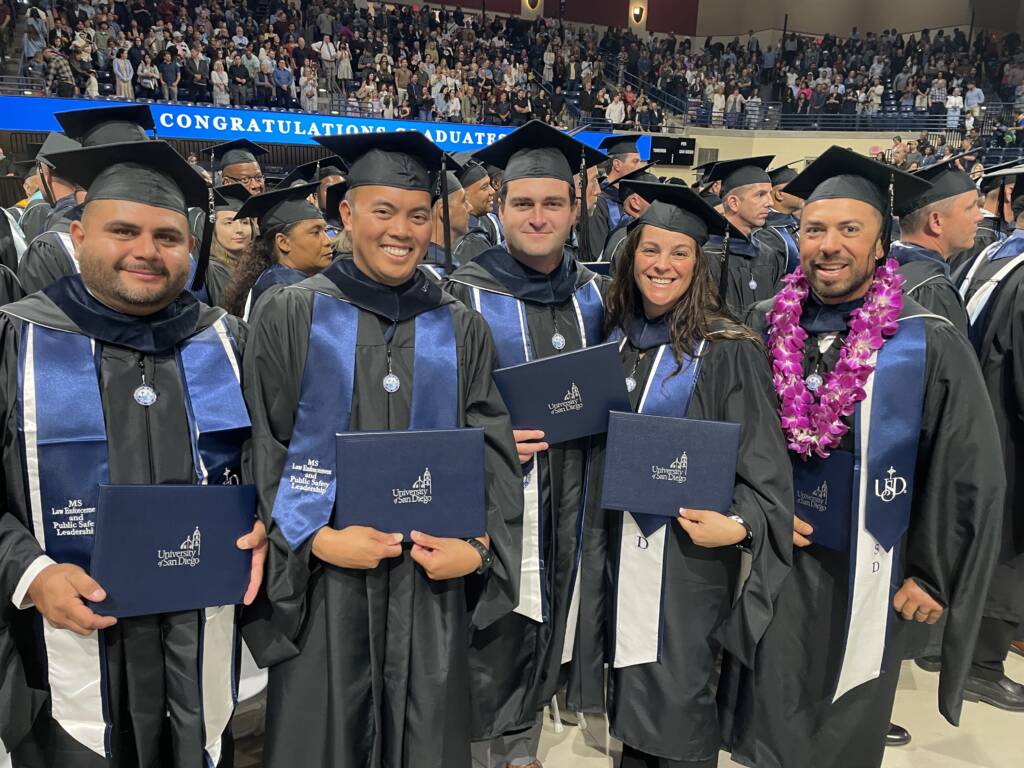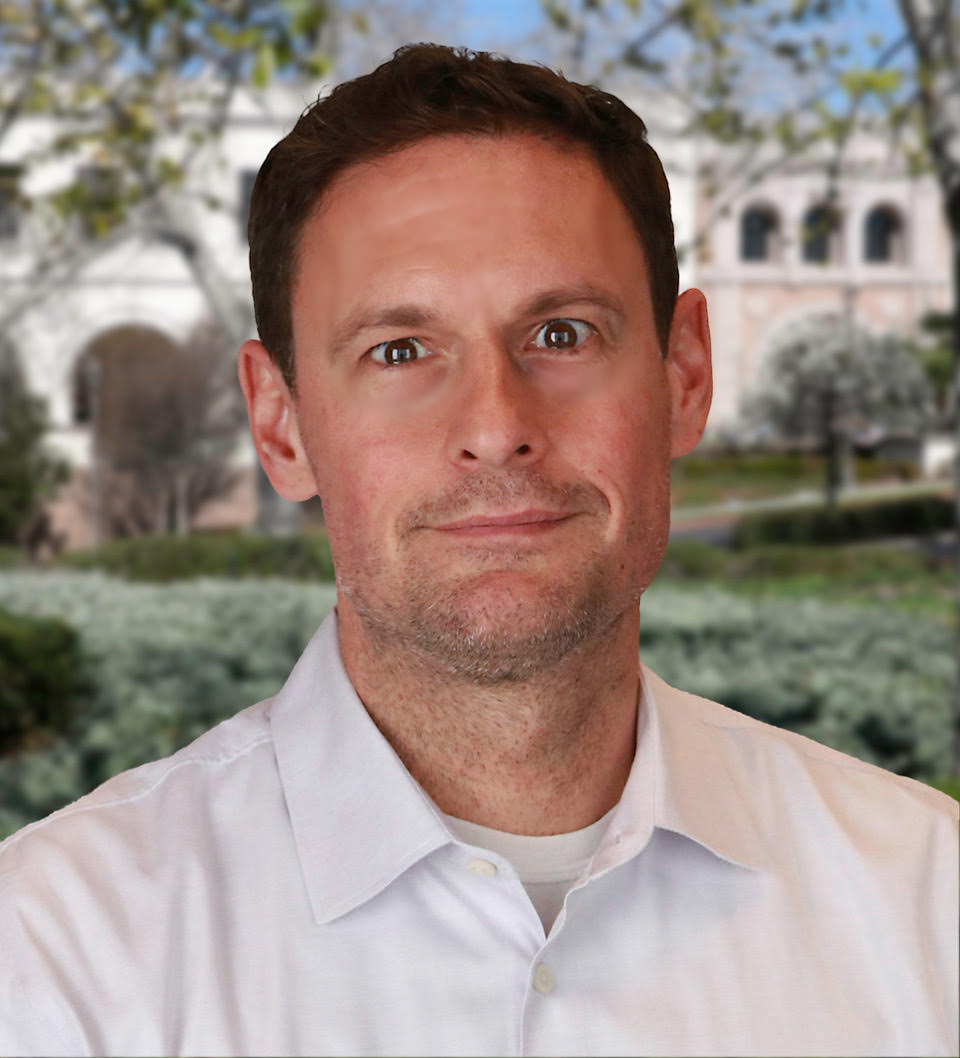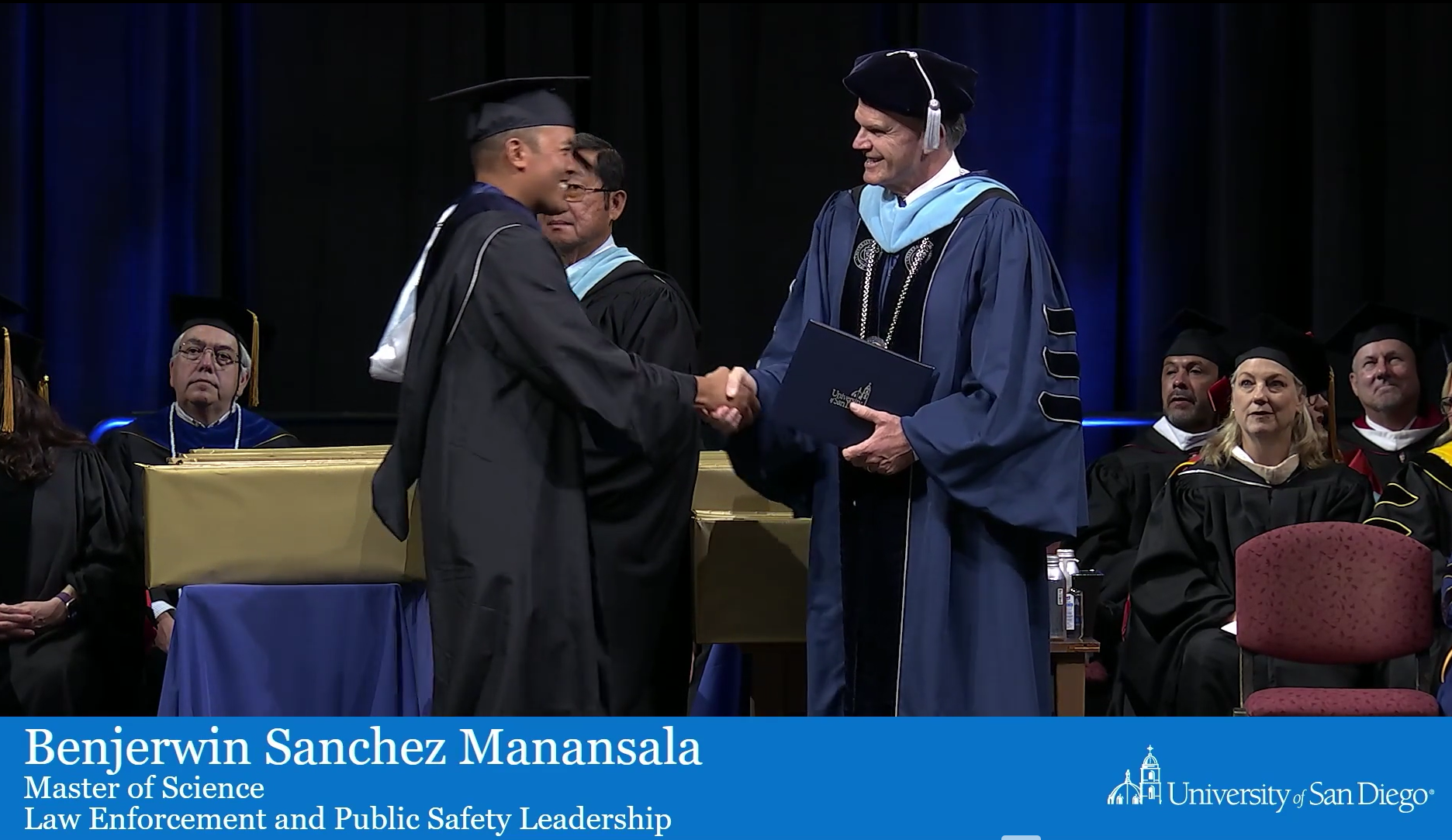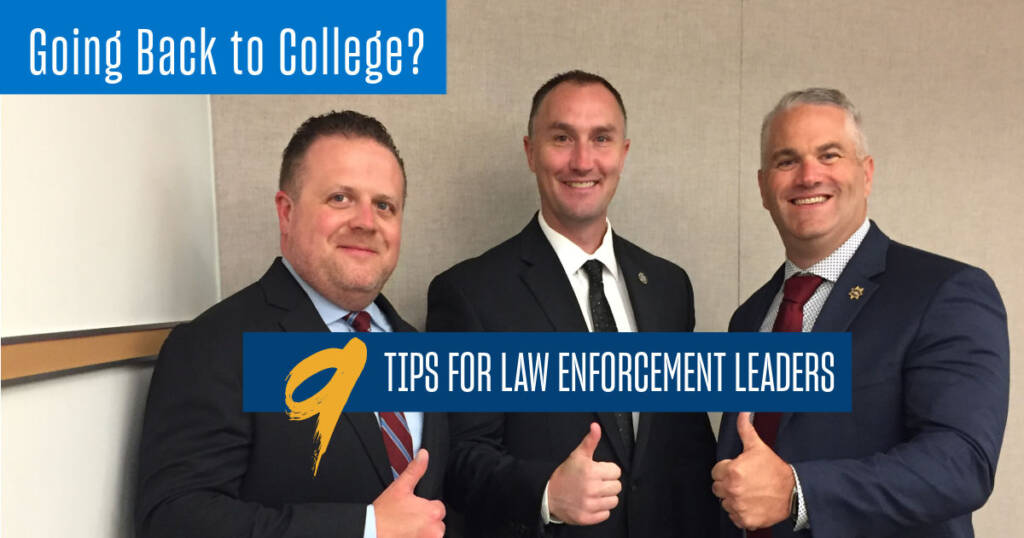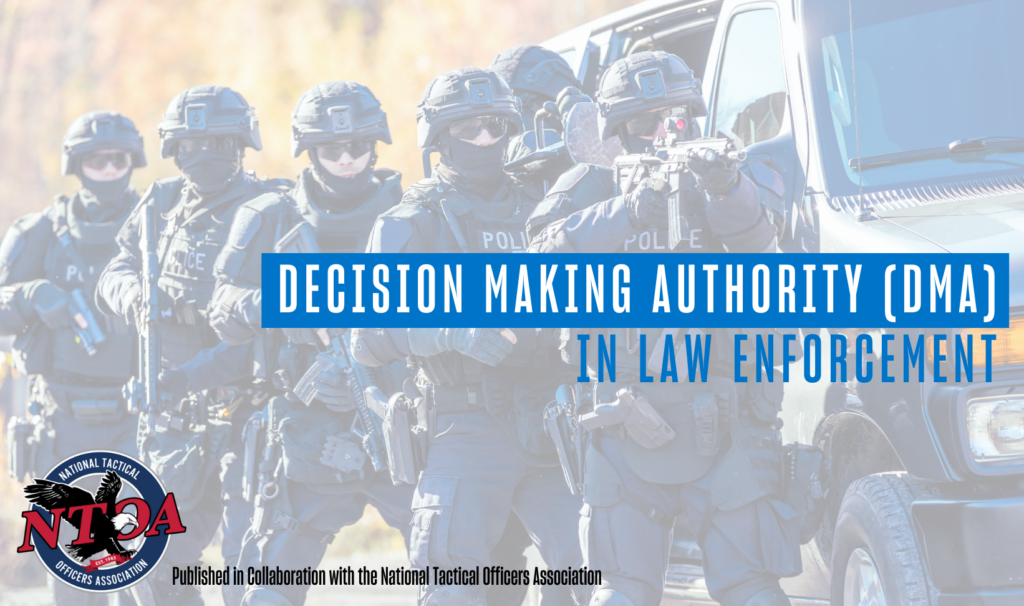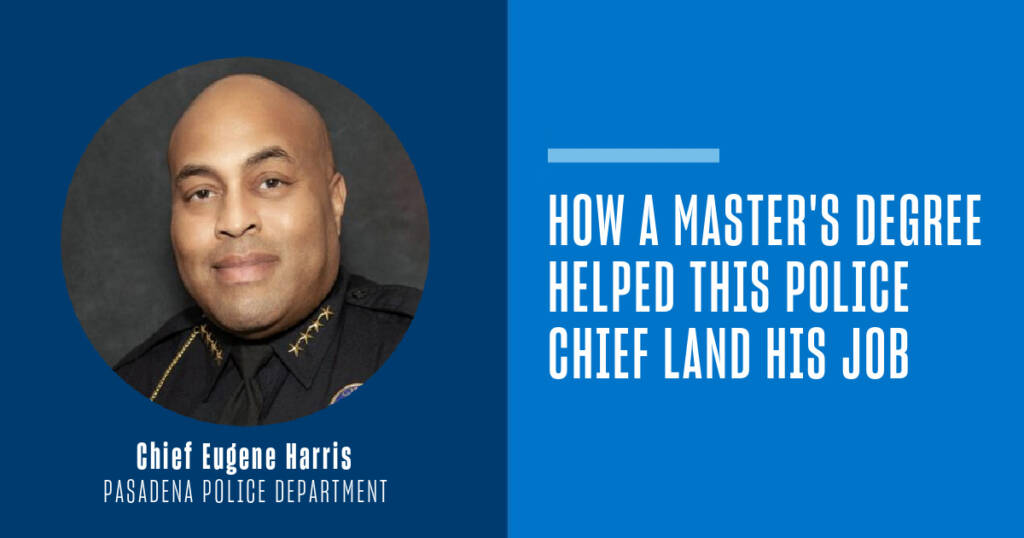When Commander Erwin Manansala of the San Diego Police Department crossed the stage on May 18, 2025, he understood the moment was meaningful — but he didn’t yet realize just how significant it truly was. Not only was he receiving his master’s degree in Law Enforcement & Public Safety Leadership (LEPSL) from the University of San Diego, a university in the very city he serves, he was also making history as the program’s 1,000th graduate.
“I know hundreds of people — now over a thousand — have gone through this program across all ranks in our profession, and I’m humbled to be part of that, to be shaping the profession in a positive way, and to be among the professionals who influence future generations coming up,” Commander Manansala said.
Manansala was first introduced to the LEPSL program through the California Commission on Peace Officer Standards and Training Command College, where the LEPSL Academic Director Erik Fritsvold, PhD serves as an instructor. In that academic setting, transitioning into the LEPSL program felt like a natural next step — and Manansala is grateful he made the decision.
“The biggest takeaways for me were the course curriculum and how contemporary and relevant and timely everything is,” he explained. He also praised the instructors and appreciated having classmates from across the country, which gave him valuable perspectives on a wide range of topics from different law enforcement agencies. “That perspective is invaluable as a police leader,” he said.
Though he acknowledges the balancing act between life, school and work, Manansala said earning his MS-LEPSL degree was well worth it. He valued the collaboration with professionals from a variety of positions and backgrounds — from police officers to executive leadership, representing departments from across the United States — all of which contributed to the program’s rich content and meaningful connections.
Commander Manansala said he would recommend the LEPSL program to anyone working in law enforcement or public safety, regardless of rank or role, encouraging them to embrace education as a lifelong journey.
“Whether you’re in the beginning, midline or twilight of your career within law enforcement, I think there’s always space to learn more — and learn more about yourself and our profession,” he said. “The skills and a lot of the topics within the LEPSL program are not just applicable to law enforcement — they can transfer to the private sector, as well.”
